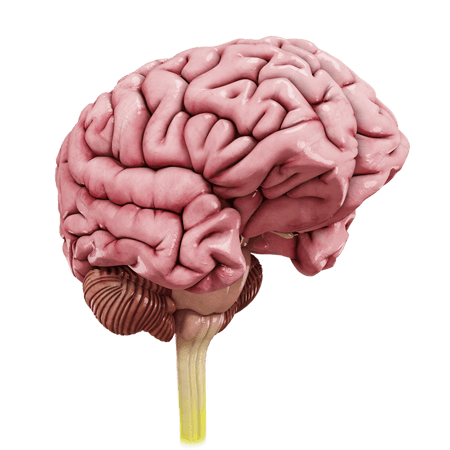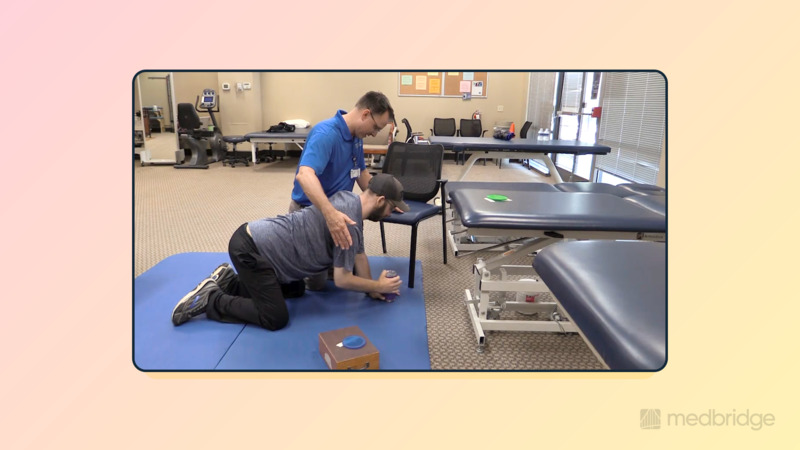Guided Programs
NCS Prep Program
This self-guided NCS Prep Program is designed to give you the tools you need to pass the test, gain expertise, and elevate the profession — all while earning CEUs.
Subscribe NowAlready a subscriber? Sign in to start

93%
Success Rate
93% of subscribers who studied with Medbridge Certification Prep Programs successfully passed their board specialization test!
Prepare to take the next step in your career
Our NCS Prep Program provides all of the tools you'll need to pass the board specialization test, develop your clinical skill set, and elevate your career — all while earning CEUs. With advanced certification, you'll set yourself apart as a distinguished professional equipped to provide an advanced level of care.
We can help you get there faster.
In this program, you will study advanced topics taught by the best instructors in neurologic therapy. With over 300 practice questions, this 20-week program will have you well-prepared for success on test day.

Learn from the Best
Study advanced topics taught by the top instructors in neuorological physical therapy.
Identify Your Strengths
Analyze your strengths and weaknesses with scores for practice areas.
Personalize Your Plan
Customize the program to meet your needs. Study in groups or on your own.
Advance Your Career
Prepare for the test and earn CEUs—all included in the annual subscription.
Explore NCS prep courses

Central Vestibular Recovery and Intervention: A Case-Based Review
Jeffrey Hoder and Laura Morris

Pathological Conditions in the Central Vestibular System
Jeffrey Hoder and Laura Morris

Anatomy and Physiology of the Central Vestibular System
Jeffrey Hoder and Laura Morris

Parkinsonism and Related Disorders: Diagnosis and Medical Management
Deb Kegelmeyer

Advanced Physical Therapy Management of Clients With Parkinson’s Disease
Deb Kegelmeyer

Dementia: Relationship of Cognition, Exercise, Function, and Mobility
Deb Kegelmeyer

Dementia Types: Assessment for Healthcare Professionals
Deb Kegelmeyer

Huntington’s Disease: Guideline-Based Decisions
Anne Kloos
Track your strengths
The NCS Prep Program is developed in alignment with the Neurologic Description of Specialty Practice (DSP). Over 300 test questions are mapped to the DSP so participants can track their strengths and weaknesses to prepare for the exam.
Examination, Evaluation, Diagnosis
Anatomy and Pathophysiology
Intervention Techniques
Degenerative Disorders
See your strength in over 12 categories! Begin the NCS program today.
Practice exam
Case Excerpt
A 76-year-old male is admitted to an inpatient rehabilitation hospital 20 days after a left middle cerebral artery ischemic cerebrovascular accident (CVA). He underwent tissue plasminogen activator (TPA) treatment, but his hospital course was complicated by the emergence of shingles on his left flank, and MRSA in his urine. His past medical history includes atrial fibrillation, degenerative joint disease, osteoporosis, coronary artery disease, hypertension, myocardial infarction, peripheral vascular disease (PVD), coronary artery bypass graft x2, abdominal aortic aneurysm repair, and a history of smoking 1 pack per day for many years. He currently has a 2-cm unstageable ulcer on his right heel. He lives with his wife in a 2-story home and has 2 sons who live in a neighboring town. He is a retired police officer. Prior to his stroke, he walked with a cane and was able to walk 10-15 minutes before tiring. He enjoys puzzles of any kind—crossword, word search, jigsaw, etc. His wife is 10 years younger than he is, works part-time at a discount store, and is in good health.
Question
An initial examination of this patient’s ambulation reveals the following:
- assistance required: minimal
- HR changes: 72–96 bpm after 100'
- distance at which motor components of gait begin to deteriorate: 100'
- walking speed: 0.3 m/s
- qualitative analysis: lack of R push-off and reduced R foot clearance during R swing phase; R hip flexion and mild knee hyperextension during R stance phase; asymmetrical step length R > L
Impairment in which muscle group is the most likely contributor to this patient’s slow walking speed?
Meet our instructors
With courses from top instructors like Karen McCain, Herb Karpatkin, and Jeff Walter.

Karen McCain
PT, DPT, NCS

Jeff Walter
DPT, NCS

Mary Beth Osborne
PT, DPT, NCS

Anne Kloos
PT, PhD, NCS

Herb Karpatkin
PT, DSc, NCS, MSCS

Susan Stralka
PT, DPT, MS

Karen L. McCulloch
PhD, PT, MS, NCS(E), FAPTA, FACRM

Deb Kegelmeyer
PT, DPT, MS, GCS
What's included in the program
Advanced Courses
Choose from over 60 online, video-based courses taught by the experts.
Practice Questions
Study with over 300 practice questions and recommended journal articles.
Group Study
Prepare on your own or with others sitting for the exam.
Structured Program
Improve your expertise with this 20-week program designed specifically for the NCS exam.
Take the first step with Medbridge
Browse our plans and pricing, or request a demo and let us help you find the right fit for your organization.
Large Organizations
50+ seats
Request a Demo
For larger groups (50+ seats), request a demo to learn more about solution options and pricing for your organization. For detailed pricing and self-service check-out, visit Plans & Pricing.
Thanks for contacting sales!
We'll get back to you soon.